Born Malcolm Little on 19 May 1925, the man who would inspire generations first opened his eyes in a city already famed for its perpetual racial tensions. Omaha, the largest city in the state of Nebraska, had a history of clashes between black and white citizens dating as far back as the 1840s, and as the city grew, so did the issue. Omaha had its own chapter of the NAACP (National Association for the Advancement of Colored People) and was home to the Hamitic League Of The World, an African-American nationalist movement. The city, and the state as a whole, also had ties to the Ku Klux Klan. It was a hotbed of racial aggression, and Malcolm’s family was right in the heart of it.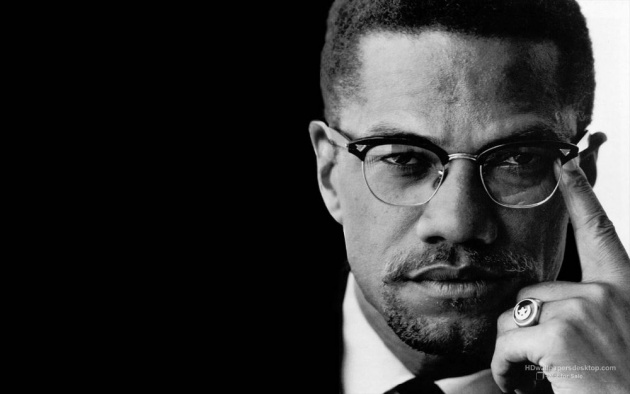
His father, Earle Little, was an outspoken member of the AfricanAmericancommunity,aman who wasn’t afraid to express his opinions on the strife of his ethnic brothers and sisters. As a local leader of the Universal Negro Improvement Association he wore his beliefs on his sleeve, and it was a mind-set that permeated his entire family. As such a prominent figure in the black community, Earle regularly clashed with many white members of the local community – including members of the Klan. So defiant was Malcolm’s father in the face of adversity that the Klan once even threatened to murder his entire family. The Littles had no choice but to flee, and little Malcolm was whisked off to a new life in Lansing, Michigan.
ansing, Michigan. Their new life was far from peaceful, though, with Earle clashing with the Black Legion, a KKK splinter group famed for its ultra-violence toward ethnic minorities. In 1929 the Little family home was burnt to the ground; the family escaped relatively unscathed, but Earle was sure the Legion was behind it. Just two years later, Earle was run over and killed by a streetcar in Lansing. The official police report states it was accident, but Malcolm’s mother is convinced her husband was murdered. It’s a belief that would stay with her for her entire life, and one that would eventually contribute to her deteriorating mental health. To a young Malcolm Little it was a stark education in the realities of living as a colored person in the early decades of the 20th century.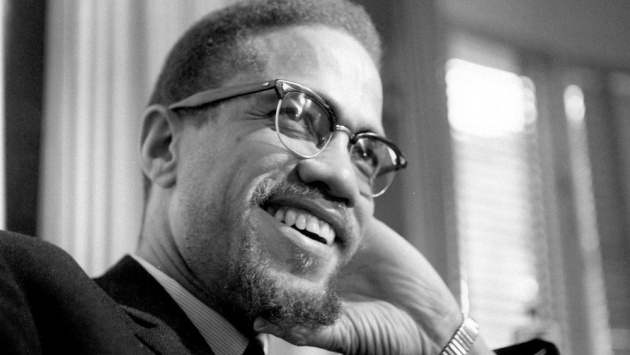
In the years that followed, the Littles continued to live through the segregation and secondclass citizenship of the times. Without Earle’s commanding presence the family sank back into obscurity, with Malcolm and his brothers forced to hunt for game in the surrounding woodland to survive. It was a tough life for any child, but Malcolm, now in his teens, was fast becoming a young man with little fear of anything. The family managed to get by, but tragedy struck yet again in 1937 when his mother Louise was committed to a mental institution. This event shattered the already splintering Little clan. When one teacher remarked that his aspirations to become a lawyer were “no realistic goals for a nigger”, he soon dropped out of high school. Despite his excellent grades, Malcolm felt he had no chance of succeeding in a world controlled by white men. With little keeping him in Lansing anymore, Malcolm slowly drifted into a life of petty crime and soon after became involved in drug dealing, racketeering, theft and more. He lost himself in the simple acts of power, the crimes getting constantly more audacious and dangerous. Eventually the number of thefts caught up to them and Malcolm was arrested and sentenced to eight to ten years in prison for larceny.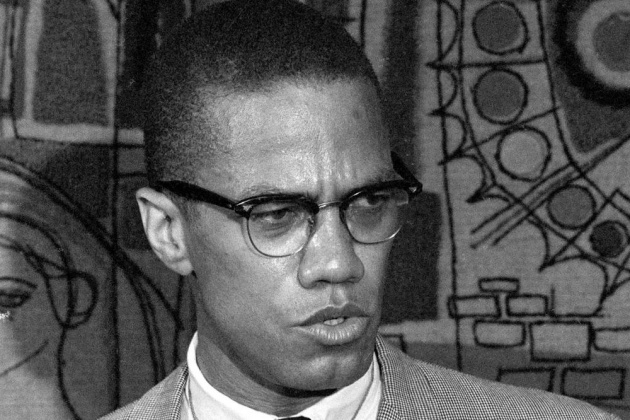
Left raw and angry by his experiences as a child and a young man, the future civil-rights leader was at a crossroads. While serving time he discovered the teachings of Elijah Muhammad, the leader of a new religious movement, the Nation Of Islam (NOI). Its central pillars of paying homage to their African routes and building a community tempered by black self-reliance inspired Malcolm to convert. In 1950, the same year the FBI opened a file on Malcolm, he shed his surname and adopted the letter ‘X’. This was used to symbolize the unknown slaves who were ripped from the heart of Africa.
Upon his release from prison in 1952, Malcolm traveled to Chicago to meet with the NOI’s leader in person. During his incarceration, he had become an outspoken new member, and Elijah was curious to meet this fearless young firebrand. Impressed with his intelligence and tenacity, Muhammad swiftly promoted him to assistant minister. Now with more influence and standing within the movement, the FBI increased its surveillance of Malcolm, shifting its focus from possible communist ties to his rapid ascent in the NOI. However, to his fellow members he was a breath of fresh air; a man not afraid to look racists in the eye and denounce their arbitrary views.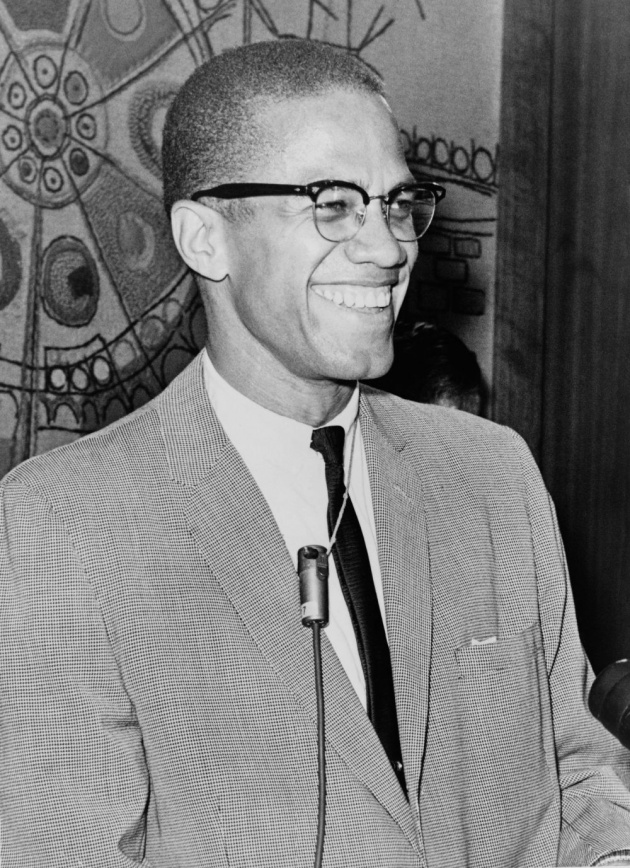
The Nation Of Islam had now become infamous for its radical views. Its ministers preached that black people were the first people of the world, superior in every way to whites. While civil-rights organisations fought to destroy segregation, the NOI actively sought it. Malcolm X was now a regular face in the public eye following the Johnson Hinton incident. When the police assaulted Hinton, a black Muslim, Malcolm led a 2,000-strong crowd to the police station to demand he receive medical attention; when the demands were met, upon a word from Malcolm the crowd left peacefully. It was a sign of his growing power and he used his increased media profile to openly denounce other civil-rights movements for their message of protest through nonviolence, stating: “I am for violence if nonviolence means we continue postponing a solution to the American black man’s problem just to avoid violence”. Malcolm’s ethos of “by any means necessary” made him an imposing and inflammatory figure to white Americans and those in the African-American community who disagreed with him.
After describing the assassination of President John F Kennedy as a sign of white America’s “chickens coming home to roost”, the NOI suspended Malcolm, keen to distance itself from the national outcry his publicised words had caused. NOI leader Elijah Muhammad had also grown anxious over Malcolm’s popularity in the organisation, fearing his own candidacy would soon be challenged. Soon after, Malcolm announced he was leaving the movement.
After leaving the Nation, Malcolm gave his infamous ‘The Ballot Or The Bullet’ speech, in which he stressed the need for African-Americans to exercise their right to vote and seek full equality. While Malcolm did urge members of the black community to, “take arms”, he was not urging his brothers and sisters to attack white people. He felt the government was not actively protecting his people from attacks, and so believed they should arm themselves and defend their lives until the government was willing to acknowledge the problem and protect them. During this time Malcolm converted to Sunni Islam, the largest and most common branch of Islam.
A month later, in April 1964, Malcolm left the US on a pilgrimage to Mecca. While there he had an epiphany: he had finally seen the Islamic faith for what it was. Not an armour with which to cocoon one’s self in, but a means of bringing the people of the world together. It was the biggest transformation in Malcolm’s mind-set since his conversion to the NOI in prison, but it would also prove to be the one that sealed his fate.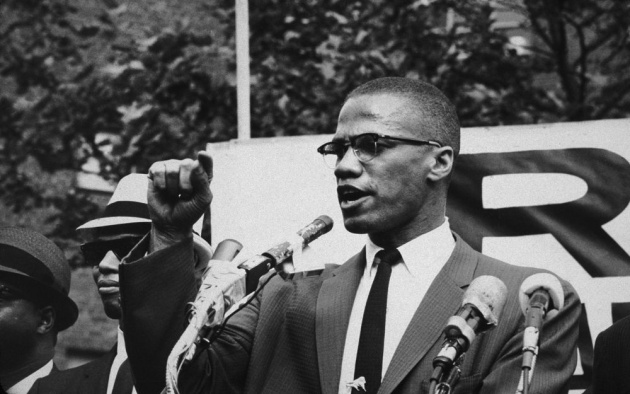
Upon his return to the United States, Malcolm had become a sworn enemy of the NOI. While his desire to see the equality and constitutional safety of African-Americans was still the central goal that drove him, his beliefs in the means to get there had changed. He embraced the peaceful doctrines of Sunni Islam and preached the importance of all Americans, regardless of race, religion or background, working together to achieve equality. For the next 12 months, Malcolm, his wife Betty and his six daughters lived a life under constant threat, but they all knew the importance of pressing forward.
By the beginning of 1965, Malcolm’s wife had even contacted the FBI directly, telling them that her husband was “as good as dead” following his refusal to back down in the face of the Nation’s death threats. Despite the dangers, Malcolm still campaigned tirelessly, conducting speeches and rallies across the country. On 21 February 1965, Malcolm addressed the Organization of AfroAmerican Unity at the Audubon Ballroom in New York. Suddenly, someone in the 400-strong crowd shouted, “Nigga, get your hands out of my pocket!” Malcolm and his bodyguards waded into the crowd to quell the disturbance as three men opened fire on him with a sawed-off shotgun and automatic pistols. Malcolm was struck 21 times and was pronounced dead shortly later.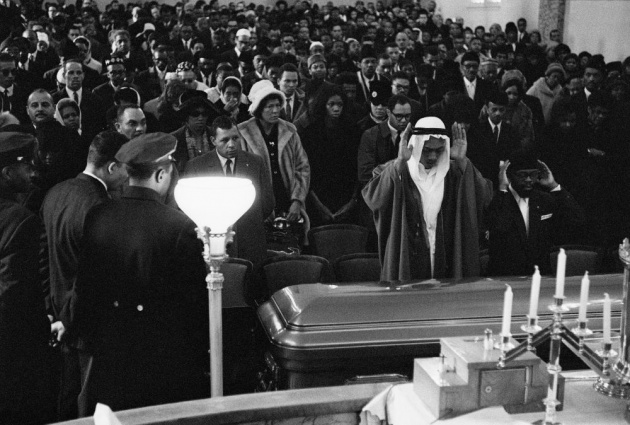
He may have been prematurely removed from the world, but Malcolm X made an impact that’s still felt today.While his views were often controversial, no one can deny his bravery in fighting against the establishment for much needed change.
MALCOLM X
Posted on at



